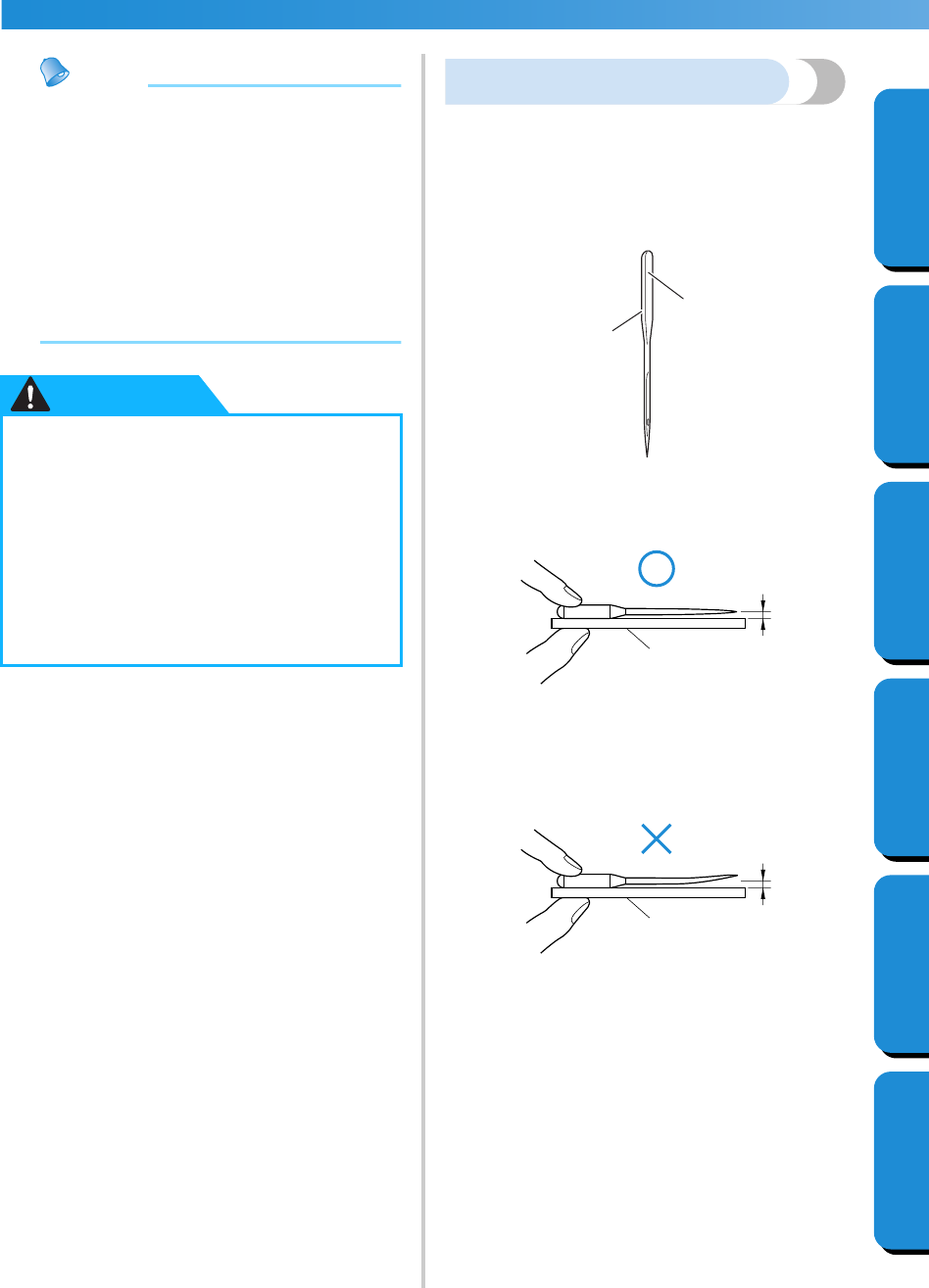
GETTING READY ——————————————————————————————————————————————————
—
34
GETTING READYCONTENTS SEWING BASICS UTILITY STITCHES APPENDIX INDEX
Memo
● The smaller the thread number, the thicker
the thread, and the larger the needle
number, the thicker the needle.
● Use the ball point needle when sewing on
stretch fabrics or fabrics where skipped
stitches easily occur.
● Use a 90/14 to 100/16 needle with
transparent nylon threads, regardless of the
fabric being sewn.
● A 75/11 needle is already installed when
the sewing machine is purchased.
Checking the needle
Sewing with a bent needle is extremely dangerous
since the needle may break while the machine is
being operated.
Before using the needle, place the flat side of the
needle on a flat surface and check that the distance
between the needle and the flat surface is even.
1 Flat side
2 Needle type marking
■ Correct needle
1 Flat surface
■ Incorrect needle
If the distance between the needle and the flat
surface is not even, the needle is bent. Do not use
a bent needle.
1 Flat surface
●
The appropriate fabric, thread and
needle combinations are shown in the
table on the previous page. If the
combination of the fabric, thread and
needle is not correct, particularly when
sewing thick fabrics (such as denim) with
thin needles (such as 65/9 to 75/11), the
needle may bend or break. In addition,
the stitching may be uneven or puckered
or there may be skipped stitches.
CAUTION
1
2
1
1


















